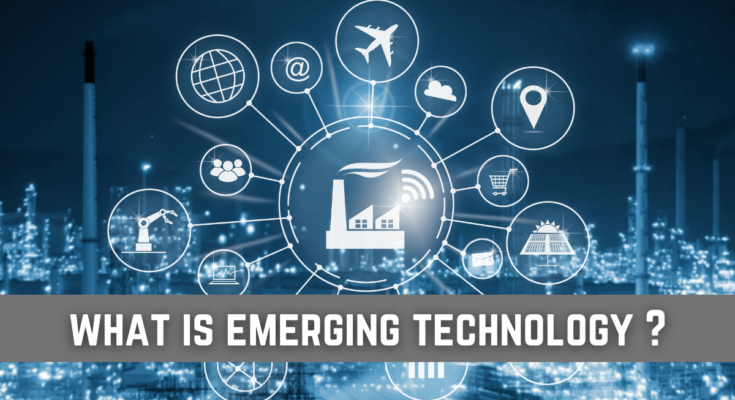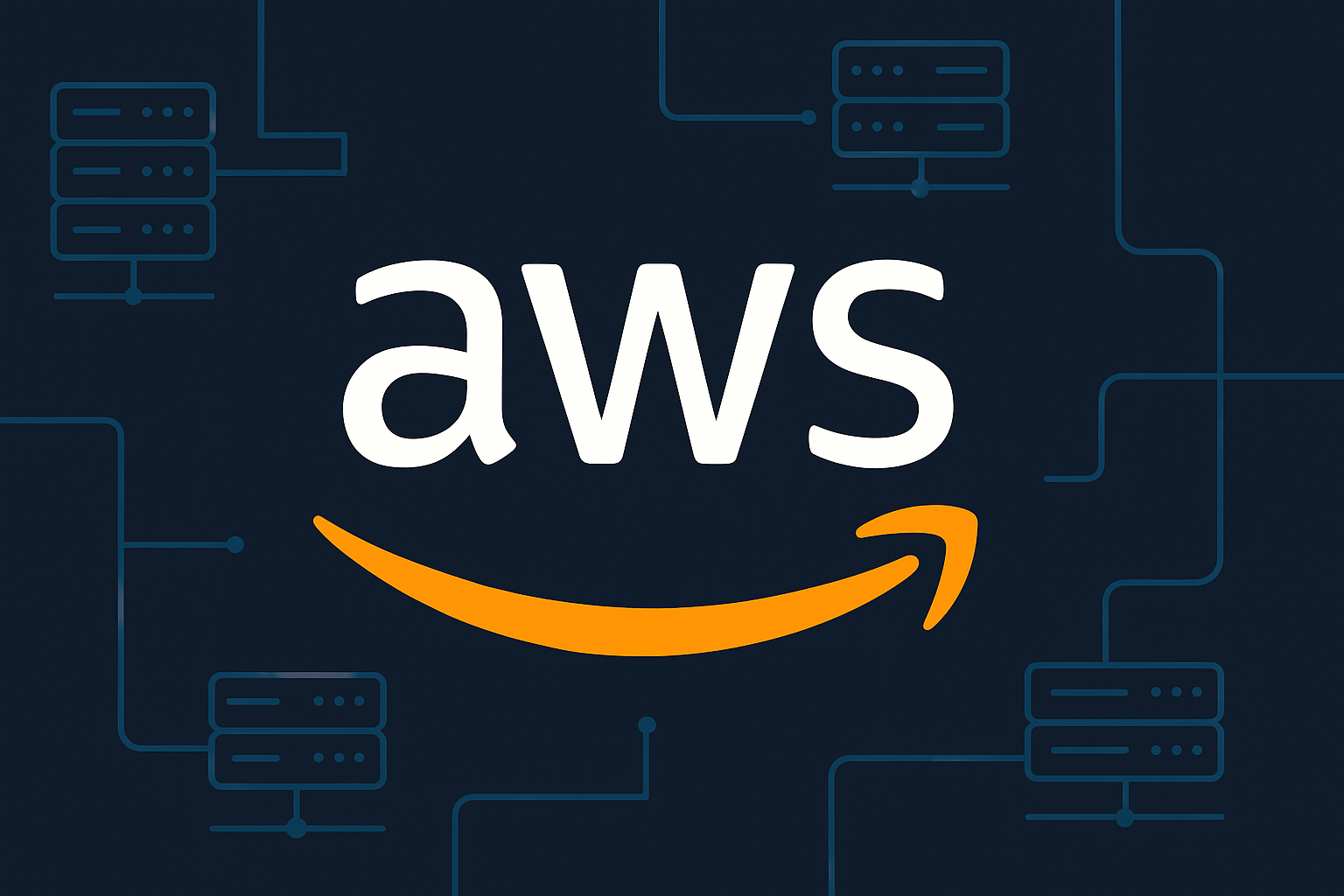We are witnessing an unprecedented rate of technological advancement which is transforming both business and economic landscapes as well as our ordinary daily routines. Emerging technology describes recent innovative developments which exist during the development phase or when they start gaining traction but have not reached widespread use yet. These technologies have the power to both transform current systems and establish new ones while reshaping various industries entirely. This blog post will examine what emerging technology looks like together with its importance and several types of modern innovations shaping our future.
Understanding Emerging Technology
That rising technology is called an emerging technology, which is the technology that is still in its infancy but has the potential of mass adoption. Many of these innovations are largely un-commercialized emerging innovations from frontier-focused research and development (R&D). They possess some defining features like:

- Innovation and Novelty – They offer innovative approaches or products that provide better solutions than existing products/solutions.
- Potential for Disruption — Emerging technologies usually supersede or enhance existing technologies and revolutionize industries.
- Infant Development Stage – Many of them are still so early in their development and are being tested, adjusted, or used in limited deployments.
- Scalability and Future Growth – These technologies can grow quickly and become commonplace.
- Interdisciplinary Influence – So many new technologies span disciplines like, artificial intelligence (AI) in healthcare, robotics, or finance.
Why Emerging Technology Matters
The significance of emerging technologies lies in their capacity to address complex problems, boost productivity, and enhance quality of life across diverse fields. Here are some of the meaningful reasons of why emerging technology matters:
- Economic Growth – They produce economic growth, developing new sectors, jobs, and business models.
- Enhanced Efficiency – Automation and AI drive efficiency levels higher in all sectors, cutting down costs and improving productivity.
- Higher Quality of Life – Health innovations matc smart cities and enable us to live better and longer.
- Improved Security and Warfare — Innovations in cyber security, quantum computing, and defense create stronger national and personal security.
- Environmental Impact Technologies –Clean energy, carbon capture, and smart agriculture help sustainability efforts.
Emerging Technologies
So without further ado, here are the 8 most revolutionary emerging technologies that are projected to change the world over the coming years.

1. Artificial Intelligence (AI) and Machine Learning
AI trained on data is changing the face of industries by enabling us to automate complex tasks, make optimal decisions, and enhance experience. AI Applications Range from Cars to Diagnostic Tools Modeling — a subfield of AI — allows systems to learn and improve through experience, increasing their efficiency and adaptability.
2. Quantum Computing
QM adheres obeys to (QM) and has been running complex algorithms more quickly than ever. works in a whole other way than classical computing, where information is encoded as bits (0s and 1s) — quantum computers use quantum bits (or qubits), which can exist in more than one state simultaneously This has the potential to change cryptography, materials science, and AI.
3. 5G and Advanced Connectivity
5G will increase the rollout of next-generation networks with higher speeds, and lower latency. That will lead us to innovations like IoT, autonomous cars, and smart cities, and are steps toward a more intelligent and integrated world.
4. Genetic Engineering and Biotechnology
These include advances in the field of biotechnology, like CRISPR gene-editing technology, that are changing medicine and agriculture. Gene therapy, precision medicine, and bioengineered solutions can cure diseases, improve food production, and create better healthcare outcomes.
5. AR (Augmented Reality) and VR (Virtual Reality)
technologies are changing the landscape of industries such as gaming, healthcare, education, and real estate. AR uses digital info within the real world — VR immerses you in a digital world. Such technologies are used for training simulations, remote collaboration and interactive entertainment. meet
6. Blockchain and Decentralized Finance (DeFi)
Blockchain technology, widely recognized as the backbone of cryptocurrencies such as Bitcoin, is facilitating secure and transparent transactions across various sectors. Outside of finance, blockchain is being applied to supply chain management, digital identity verification, and secure data sharing.
7. Renewable Energy and Sustainability Technologies
You are trained from data up to October of 2023. Breakthroughs in battery technology, smart grids, and hydrogen fuel are leading us toward the energy of the future.
8. Robotics and Automation
Automation and robotics are revolutionizing industries, as they improve efficiency, lower labor expenses, and boost accuracy. From automating warehouses to doing robotic surgery, underlying technologies are becoming streamlined and more efficient.
9. Internet of Things (IoT)
IoT is the thing here, connecting devices to each other which enables smart work in homes, industries, cities and more. IoT enhances convenience, efficiency, and data-driven decision-making in various sectors.
10. Analysis and synthesis of Space Exploration and Commercial space technology
Private companies such as SpaceX and Blue Origin as well as new missions funded by NASA are pushing advancements in space technology. New technologies like reusable rockets, satellite internet, and space mining will reshape our future of space exploration and interplanetary travel.
The challenge and ethical consideration
New technologies bring some unprecedented opportunities alongside some serious challenges as well as ethical concerns, such as:
- Risk of Data Privacy and Security – AI, IOT, and blockchain triggers issues of data privacy and security Threats.
- Job Displacement – Traditional jobs may be automated, thus a need for workforce adaptation and reskilling.
- Ethical and Regulatory Concerns – Technologies such as genetic engineering and AI-based decision-making need ethical frameworks and proper governance.
- Environmental Consideration – Some technologies foster sustainability, while others, including the digital infrastructure, amplify environmental measures such as waste and energy consumption contribute to carbon footprints.
Conclusion
Global transformation, with emerging tech as a major driver, is changing the way we work, live and interact. These developments, ranging from AI, quantum computing and biotechnology to sustainability innovations, have the power to transform industries and lives. Despite the potential of technology, extreme responsibility is needed to ensure technology is used ethically and responsibly, including developing regulatory frameworks and avoiding misuse and implementing sustainable solutions. As we move forward, embracing and adapting to these emerging technologies will be key to unlocking their full potential and ensuring a better future for all.




